One of the worst mistakes you make in life is underestimating your opponent. Too often we allow our adversaries to succeed because we disdain them, their beliefs, or their methods and fail to give the Devil his due. A prime example of this is evident in an op-ed in Politico by our former ambassador to Moscow, Michael McFaul titled Putin the (not so) Great.
Vladimir Putin is everywhere in the Western media these days – glaring at us from the cover of magazines, psychoanalyzed daily on television, lampooned as a bullying tyrant in cartoons. Most portrayals assign sinister intentions to the Russian ruler. Yet, a subtext in many accounts is that Putin is also succeeding. As Time magazine put it, “each new crisis makes him stronger.” Putin may be a bad guy, so this story goes, but he is also shrewd, tough, strategic and smart, outmaneuvering the hapless Western alliance seeking to counter this judo master in the Kremlin.
I disagree. Putin dreams of comparisons with Peter the Great or the Catherine the Great. But if we judge him by his ability to achieve even his own stated goals, his record is not so great. He has achieved some objectives aimed at restoring Russia to the position of global greatness he believes it deserves, but failed at achieving those most important to him. And the future looks even darker.
I don’t pretend to have the academic credentials or field experience concerning Russia that Mr. McFaul does but this thesis goes a bit too far. Putin has become a bogeyman to all too many people, and inexplicably a hero to some. There is little admirable about man on a personal level or in his chosen method of governance. But what we do have to do is acknowledge that Putin is shrewd, tough, strategic, and smart. He is also a world class opportunist. If we refuse to accept as part of his nature those traits which we have observed in practice since he became president of Russia in 2000 we do so at our own risk.
McFaul lays out Russian geopolitical priorities:
When I was still the U.S. ambassador to Russia earlier this year, there was much consensus among diplomats, Russian officials, and analysts about Putin’s priorities. Back then, the list was (1) strengthen the Eurasia Economic Union he was trying to forge with the post-Soviet states on Russia’s borders; (2) check American power around the world, including most importantly our alleged policies of regime change in the Middle East and Eurasia; (3) nurture the image of the United States as an enemy, as a way of strengthening Putin’s domestic supporters and weakening his domestic critics; (4) check the expansion of American missile defenses; (5) increase trade and investment; and (6) reclaim Russia’s role as a respected, pivotal power in the international system. One important objective from the past — stop NATO expansion—was not on this list because that objective, many believed, already had been achieved.
Assuming, arguendo, that these are correct, let’s hold McFaul to his own metric and see how Putin measures up.
Strengthen the Eurasia Economic Union he was trying to forge with the post-Soviet states on Russia’s borders
McFaul is right. The Eurasia Economic Union was sort of a successor to the Commonwealth of Independent States, a rather lame and ill-considered attempt at a post-Soviet union of the former parts of the USSR. Both the EEU and CIS were only feasible with the Ukraine as a member as the remainder of the potential states are near basket cases. The current warfare in Ukraine seems to put closer relations between those two nations less likely to happen in the future. The EEU had an additional problem in that Communist China has its own economic plans for the states in Central Asia and quietly opposed the union. McFaul devotes most of his article to how this scheme has cratered.
Check American power around the world, including most importantly our alleged policies of regime change in the Middle East and Eurasia
It is hard to say Putin has failed here. His punitive expedition against Georgia was a success in that it radically dampened the pro-West noise coming from Georgia and eerily foreshadowed actions in Ukraine. Early in the Obama administration he somehow convinced the credulous naifs in the White House that he could be an effective go-between in negotiations with Iran over their nuclear weapons program. Once inside, no progress was made but Russia used their assistance to Iran as a way of building a de facto alliance with Iran against the United States. Russia and Iran have acted in concert against a [dunderheaded] US policy in Syria and have saved Assad’s bacon… or falafel or whatever. This will draw Syria even closer to Moscow that it had been. Similarly, Russia and Iran are acting to save a putative American ally, or at least a country in which we have a strategic interest, Iraq, from the unintended consequences of our own policy in Syria. Where the US has done nothing to assist the Maliki government, Russia has sent strike fighters and ground support staff. In fact, the US can’t seem to be roused out its torpor to aid people who actually like us, the Iraqi Kurds. When one balances this against what the United States has achieved in the past six years, it is clear who the winner is.
Nurture the image of the United States as an enemy, as a way of strengthening Putin’s domestic supporters and weakening his domestic critics
This is a subjective measure. Putin has ruthlessly suppressed dissent, to the extent of imprisoning a brace of decidedly untalented singers for criticizing him. He has imprisoned oligarchs who crossed him. He has killed people who irritated him. He controls the Russian media. All of these things strengthen his supporters and weaken… if not outright eliminate… his critics. But has he been successful in making the US into a domestic bogeyman? I turned to the Pew Research Global Attitudes Project because they look at such things and they have time series data.
When you ask Russians their view of Russia, you get this:
When you ask Russians their view of the United States you get this:
It looks like that Putin has not only been successful in improving the domestic image of Russia but of significantly damaging the Russian domestic view of the United States.
Absent a lot more evidence to the contrary it would seem that Putin has been successful in attaining this objective, at least for now.
Check the expansion of American missile defenses
In 2009, Obama scrapped the deployment of our missile defense system to Poland and the Czech Republic. It was replaced with the concept of using a singe Aegis equipped cruiser in the Black Sea. Since then the Russians have abrogated the Intermediate Range Nuclear Forces treaty by testing a ground launched cruise missile. This missile effectively nullifies the missile defense system. Between Putin’s strong-arming Obama into walking back from commitments made to our allies and openly fielding a weapon designed to defeat the missile defense system and developed in defiance of treaty obligations it is hard to say he has not accomplished this objective.
Increase trade and investment
While it is too early to posit the results of the sanctions imposed on Russia after its adventure in the Ukraine we can look at the data up to that point.
On foreign investment in Russia:
For the first time in its history, Russia has become the third largest global recipient of FDI flows according to the UNCTAD Global Investment Monitor. In 2013, FDI flows into Russia reached a record of 94b USD, which represents an 83% increase compared to the preceding year. This boom was mainly caused by the British company BP aquiring a 18.5% stake in Rosneft as part of Rosneft’s acquisition of TNK-BP for the sum of 57b USD. In 2013, Russia gained 20 places in the yearly Doing Business Report of the World Bank, becoming one of the most dynamic coutries among the BRICS.
More recent data on Russian trade is sketchy but this graph gives an idea of the trend line.
Reclaim Russia’s role as a respected, pivotal power in the international system
Obviously this is in the eye of the beholder. But given the way Russia has aggressively asserted itself into European and Middle Eastern politics it is a pivotal player. If you are in the Obama administration it may not be a respected player, but if you are in Syria, Iran, Iraq, the Baltic States, Germany, Hungary, Turkey, Belarus, the Ukraine, etc., it is very much respected… or feared which is a damned good proxy for respect.
Whistling past the graveyard
What McFaul engages in is the sort of wishful thinking that plagued the Democrats through most of George Bush’s administration. Because he dislikes Putin and thinks he’s evil and disagrees with his policies he is stupid. This isn’t the case. Putin is not invincible. But even McFaul’s examples of Putin’s failures really say much more about McFaul’s myopia and his inability to understand the flexibility of Putin’s strategic thinking. For instance:
Having failed to achieve his most desired goal – Ukrainian membership in the Eurasian Union — Putin pursued what he saw as the next best outcome, a Russian-friendly government in Kyiv for as long as possible. In February of this year, European, American, and Russian officials worked together to try to forge a pact between the Yanukovich government and the Ukrainian opposition that would have prolonged Yanukovich’s tenure in office and postponed new elections. Again, however, Ukrainians on Maidan Square said no, and Moscow’s ally, Yanukovich, fled. Putin’s second-best option (and frankly the option also supported by U.S. government at the time) did not succeed.
In response to this second failure, Putin struck back and annexed the Ukrainian peninsula of Crimea. Before this year, I do not recall Putin ever devoting a major speech to defending the “oppressed” Russians in Crimea or criticizing Soviet leader Nikita Khrushchev’s 1956 giveaway of Crimea to his comrades in Ukraine. But Putin’s newfound focus on these alleged injustices from the past helped him justify and complete quickly his occupation of Crimea.
This success, however, came at a very high price for his most important foreign policy objective: By annexing Crimea, Putin has made sure that Ukraine will never join the Eurasian Economic Union.
All of this is true… as far as it goes. I would argue that when Putin saw the goal of Ukrainian membership in the EEU he did the next best thing. He annexed Crimea, because he was probably smart enough to see that he wasn’t going to install another tool like Yanukovich in the foreseeable future, this was a public affairs coup that played well at home and offset the effect of losing his man in Kiev. Then he fomented rebellion in eastern Ukraine to carve more territory out of Ukraine to make an example of them. In the long run, Putin knows he can have his cake and eat it too. Ukraine is dependent upon Russia for natural gas and Russia will always be its major trading partner. If he can intimidate the government in Kiev he gets what he wants.
Putin may have overreached in Ukraine. The downing in Malaysia Airlines Flight MH-17 has damaged him abroad and the Ukrainian separatists are about to put him in a the position of cutting them free or sending the Russian army in to save them. But McFaul’s cry of “Armageddon” because of the short term reverse in Ukraine is rather silly. His tactical assessment of an Afghan-like war of attrition is simply belied by the fact that the area he would be invading is ethnic Russian and no one is arming the Ukrainians. More sanctions seem likely as the major losers in the last round were US and European banks and huge corporations like Siemens. So long as Russia exports natural gas and Europe needs it sanctions are a joke. Likewise, there is no possible way McFaul can claim that $75 billion has fled Russia since the Ukraine conflict erupted, the reporting processes simply are not there to credibly make that claim.
McFaul also seems to be under the illusion that Putin’s actions have strengthened NATO. Nothing could be further from the truth. It has exposed some clear rifts in NATO between countries like Poland, who are concerned about Russia, and the US and Germany, who seem hellbent on placating Putin.
No, Putin isn’t superman. But neither is he the incompetent that McFaul makes him out to be. Ukraine, in general, and the MH-17 shootdown, in particular, have presented some difficulties to Putin and have shown the limits of his ability to shape events. The fundamentals of Putin’s power and influence, however, are untouched. To say these are game changing events is nothing more than whistling past the graveyard.
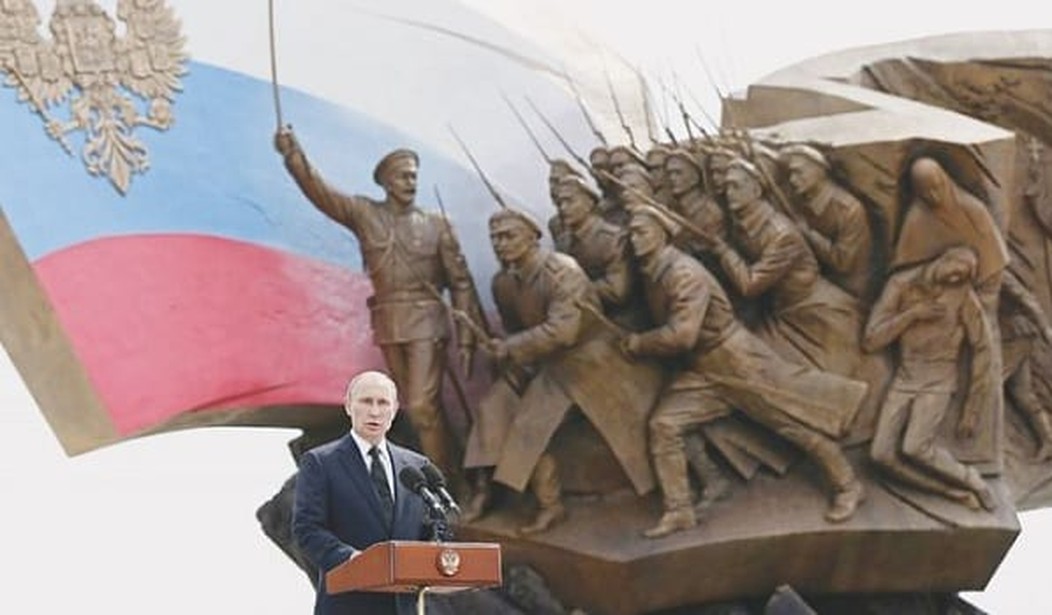
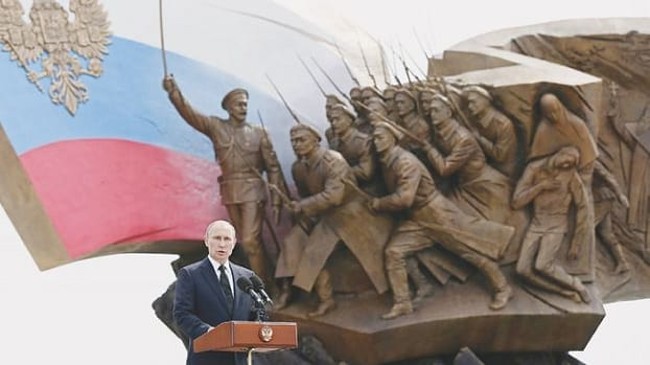
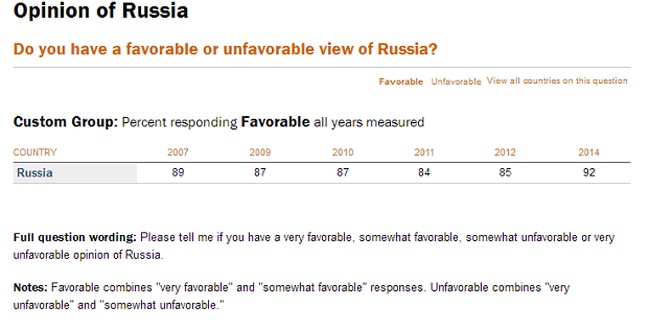
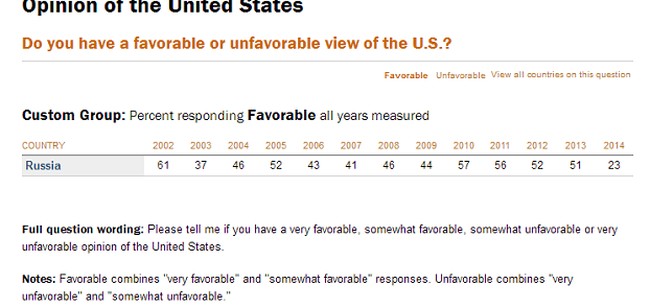
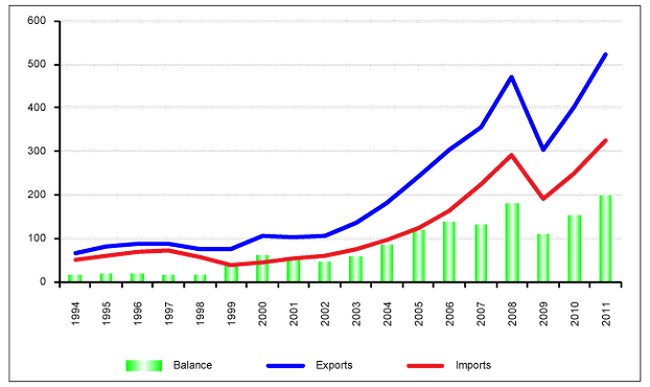


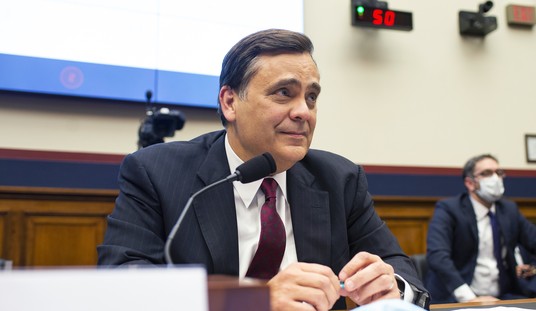






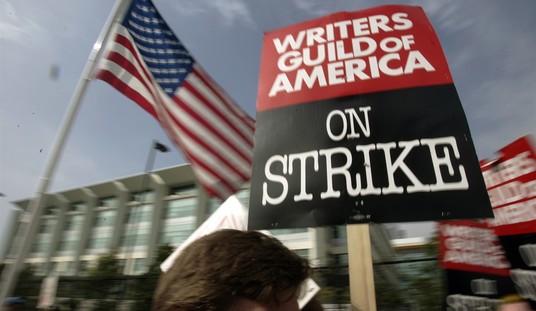
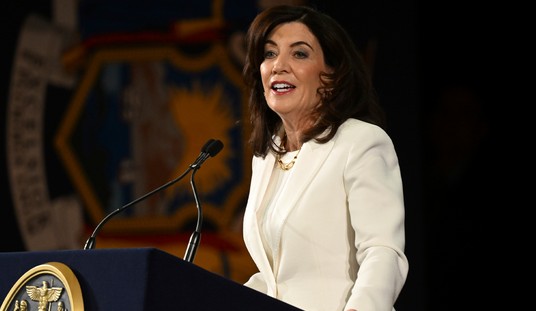
Join the conversation as a VIP Member